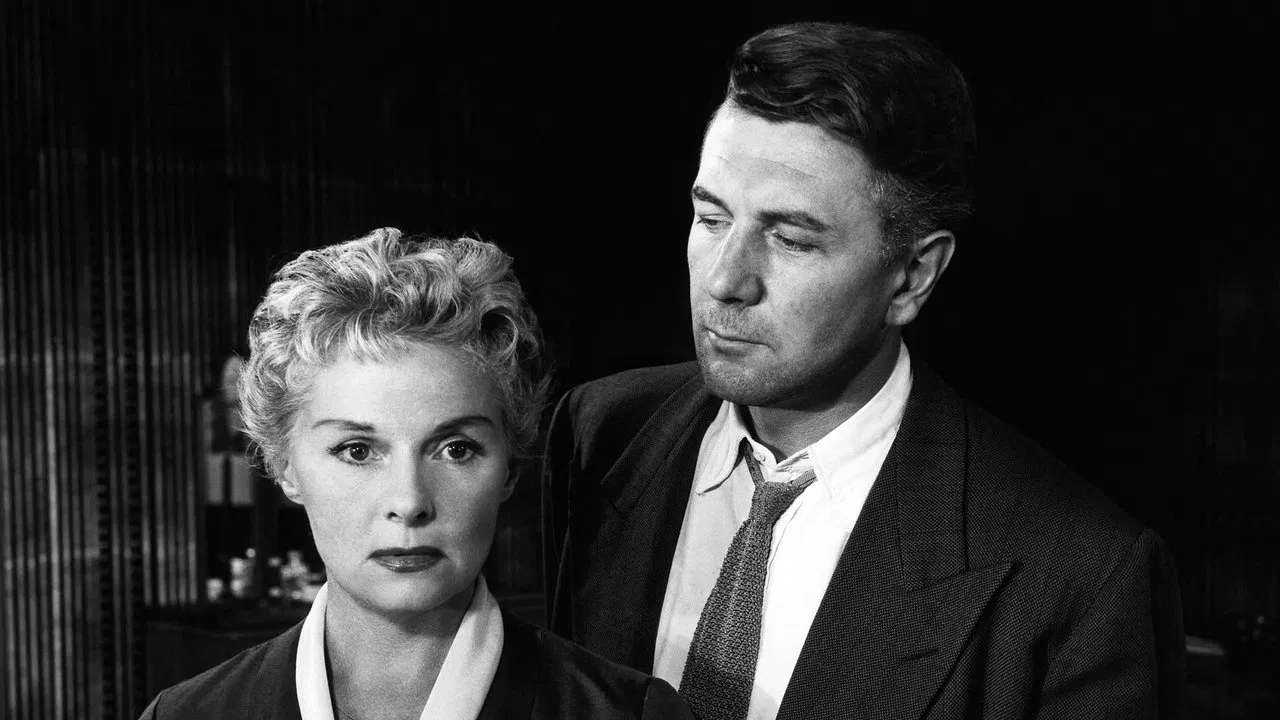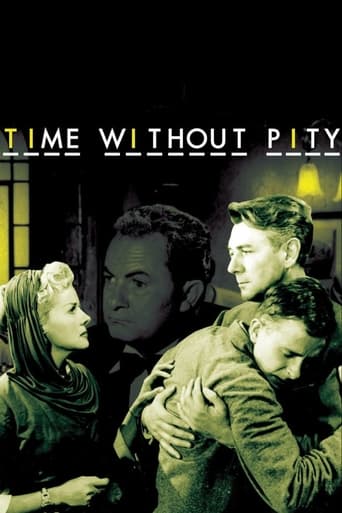

When a film goes wrong, I find it's often a tossup as to who is to blame - the actors or the director. And what it comes down to, is whether it's one actor not doing a good job, or multiple actors not doing a good job. The former is likely the fault of the actor; the latter is likely the director's fault. In this film, I believer it's the director's fault.Certainly, Michael Redgrave is guilty of serious over-acting in this film. And to top it off, he seems very awkward throughout the film. Bill Williams as Lee CrenshawLeo McKern is also guilty of serious over-acting in this film. Paul Daneman seems terribly awkward, as well.On the acting front, that doesn't mean that every performance is bad. Ann Todd and Peter Cushing do well here.The story itself is decent, although trying to cram everything into a 24 hour time frame seemed awfully unreasonable. A 2-3 day story arc would have worked better and been more realistic.I've never been very impressed with British films from this era (they've gotten very good in recent years). And, I'm not very impressed with this film. It had potential, but the acting and direction ruined it. The one really high point -- a clever ending.
... View MoreThis film came out shortly after the hanging of Ruth Ellis and the cries for the abolition of the death penalty in this country.It is interesting to note that the film,despite having big film names,could not find a distributor and a company had to be formed to distribute it.It is not surprising since this film would have been likely to drive even the keenest cinema goer from the building.Difficult to understand what possessed Losey to direct his actors in such a strident manner.His direction is only matched by a discordant score which sounds like a cat walking over an LP.The point the film is trying to make is clearly lost because it really tries to overwhelm the viewer.It is little wonder that it is now unknown and unshown.
... View MoreTime Without Pity is directed by Joseph Losey and adapted to screenplay by Ben Barzman from the Emlyn Williams play Someone Waiting. It stars Michael Redgrave, Ann Todd, Leo McKern, Paul Daneman, Peter Cushing, Alec McCowen, Renee Houston and Lois Maxwell. Music is by Tristram Cary and cinematography by Freddie Francis.David Graham (Redgrave) is a recovering alcoholic who comes out of the sanitarium to try and prove his son is innocent of murder. His son, Alec (McCowen), is to be hanged in 24 hours for the slaying of his girlfriend. David finds he is constantly met with brick walls and his sobriety is tested at every turn, but salvation may lie with the suspicious Stanford family... Blacklisted in America, Joseph Losey went to the UK and made a number of films under various pseudonyms, Time Without Pity marked the first time he would put his own name to the production. It's also a film that stands tall as another of Losey's excellent British offerings.Losey and his team do not make a murder mystery, from the off we see who the killer is and it's not young Alec Graham. This is a device that in the wrong hands has often over the years proved costly, where viewers looking for suspense have been sorely short changed. What happens here is that we are privy to an investigation by a man in misery, battling his demons as he frantically searches for redemption. Tick Tock. Tick Tock.Shunned by his estranged son, who would rather be hanged for a crime he didn't commit than accept his "waster" father's help - that might in turn give him false hope, David Graham is a haunted being who is closer to solving the case than he knows. This brings us viewers tantalisingly into the play, we know who it is, we can see how they react around David and how the other players who are hiding something also behave from scene to scene. The script never looses focus, it constantly keeps a grip on the tension as the clock ticks down on the Graham's.Tick Tock. Tick Tock.Losey and the great Freddie Francis are a dream pairing, a meeting of minds who could produce striking lighting compositions and scenes of other worldly distinction. Time Without Pity is full of such film making smarts. Time is a key, obviously, clocks feature constantly, including one classic era film noir extended scene as David visits a potential witness who has her home filled with alarm clocks! Alarm clocks that keep going off at regular intervals, thus putting an already twitchy and sweaty David Graham further on the edge of his nerves.Tick Tock. Tick Tock.One scene enforces that on the page there's an anti-capital punishment message, but as a bunch of suits sit in a room digressing about the ethics of it all etc, Losey and Francis fill the room with stripped shadows filtered via the led patterned windows, it's that what you remember, not a social message. Gorgeous and potent all in one. Mirrors feature as well, with one elevator shot superb, while the bittersweet ending deserves better credit than it got at the time of release. Certainly noir lovers will enjoy it as much as they enjoy some other kinks in the story narrative.Over the top of it all is a brilliant musical score by Tristram Cary (all his 50s work is worth checking out), three years before Herrmann brought bloodied strings to Psycho, Cary deals from an earlier deck of cards with string menace supreme, while his ticking clock motif is a pearler. Redgrave is terrific, a sweaty mass of fragility, while Todd, Cushing and Houston (wonderful) bring class to their respective characters. Losey's misstep is in not reigning in McKern, who is way too animated throughout, but such is the strength of everything elsewhere, it can't hurt the picture at all. Oh and look out for future Miss. Moneypenny Lois Maxwell, the little minx.Now widely available on DVD with a good print, Time Without Pity demands to be better known. 9/10
... View MoreA bizarre psychogram of a series of characters, all of whom are disturbed in their own manner. Losey delineates the characters through a series of images which are so effective because they're so simple.A cheap B-movie. The choppy dramaturgy and editing, viewed from today's perspective, conveys a nervousness and an intensity to the film that was probably lost on a 50's audience. No happy end, but a just and noble one.
... View More